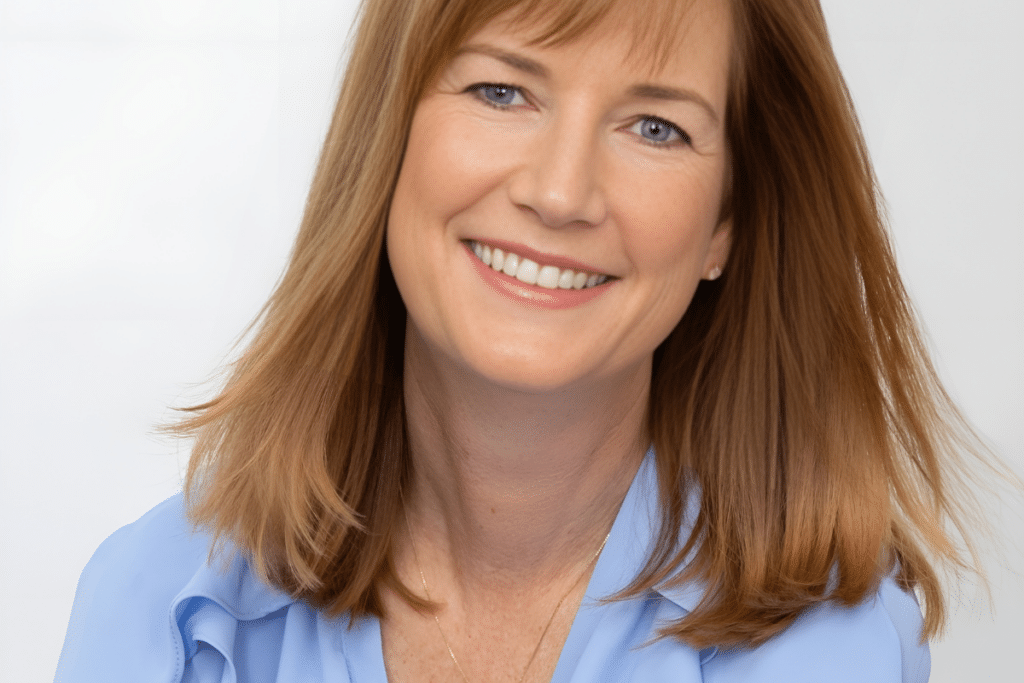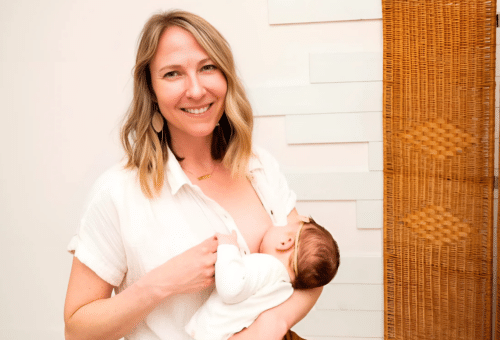
This World Breastfeeding Week, we’re thrilled to see the Rhode Island Department of Health (RIDOH) highlight Kathleen Moren, founder of Healthy Babies, Happy Moms Inc. – one of our incredible milk depots. Read on for her thoughts on “Closing the Gap: Breastfeeding Support for All” (the theme for World Breastfeeding Week 2024) and the ways in which we can all help further this vital mission . . .
Closing the Gap: Breastfeeding Support for All . . .
August 1-7 marks annual World Breastfeeding Week, a global campaign to raise awareness about issues related to breastfeeding. The theme for 2024 is “Closing the Gap: Breastfeeding Support for All.” While breastfeeding offers many health benefits for babies and those who feed them, only one in four babies is breastfed exclusively until they’re 6 months old, as recommended by the Centers for Disease Control and Prevention (CDC).
According to the CDC, breast milk is the best source of nutrition for most babies. Babies who are breastfed have a lower risk of certain health conditions like asthma and diabetes. The CDC also notes that breastfeeding can reduce the risk of breast and ovarian cancer in the person who breastfeeds. While many people may want to breastfeed their babies, they may need support and resources to do so. RIDOH recently spoke with Kathleen Moren, RN, BSN, IBCLC, founder of Healthy Babies, Happy Moms Inc., about the challenges people may face when breastfeeding their babies and how support can help ensure continuity of care.
You founded Healthy Babies, Happy Moms in 1999. How does your business support people who breastfeed?
Healthy Babies, Happy Moms provides lactation consultations in our East Greenwich office, at people’s homes, or virtually as telemedicine appointments. Our lactation consultants are all board-certified lactation consultants and registered nurses. We try to schedule lactation consultations about a half-hour before parents expect the baby to eat so we can observe a feeding and offer feedback. Parents can request a referral from their doctor if they’re using insurance to pay for their consultation. Healthy Babies, Happy Moms is also the Rhode Island depot for Mothers’ Milk Bank Northeast, a human milk bank, and is also the administrator of the RIDOH Women, Infants & Children (WIC) Pump Program. We also offer support groups, breast pump rental and sales, infant sleep and parenting preschooler consults, and infant home phototherapy.
What led you to specialize in providing this care?
I was a neonatal intensive care unit (NICU) nurse for 10 years in Chicago before working in home healthcare. This was back when women were being discharged from the hospital within 24 hours after birth and insurers were sending nurses into the home to check on them. I worked for a home health agency that did those visits and in the course of that work, I came across a lot of breastfeeding women. Appointments with breastfeeding women tended to be longer and not a lot of nurses wanted to take those appointments. But I had breastfed my own two children and knew what it was like. I had a very supportive boss who helped me do what I needed to do to become an international board-certified lactation consultant (IBCLC).
I soon began working for a corporate consulting firm that wanted to provide support to women returning to work while breastfeeding. The firm hired consultants like me to support women so they could manage working and breastfeeding a new baby. After my husband’s job brought us to Rhode Island, I continued working for the corporate lactation consulting firm, managing clients in Boston and New York. I also started providing in-home lactation consults within Rhode Island. That’s when I learned there wasn’t a lot of in-home support for breastfeeding women in Rhode Island. The services that were the standard of care in Chicago and other cities were not the standard of care in Rhode Island.
How has breastfeeding and breastfeeding support changed during your time in Rhode Island?
Historically, Rhode Island has been a national leader in rates of breastfeeding women and in advocacy to support them. But RI breastfeeding rates have gone down some. One of the things I’m really excited about is the new RI Breastfeeding Strategic Planning Advisory Facilitation Team, which met for the first time in April 2024. We’re working on the Rhode Island strategic breastfeeding plan to improve access to breastfeeding supportive care in the state.
Why do you think some parents either choose not to breastfeed or give up on breastfeeding?
I attribute this to a lack of support in the postpartum period, specifically in the time from hospital discharge to a woman’s return to work. Many moms have to go back to work quickly, and their leave is often unpaid. It can be overwhelming trying to figure out how to manage that. If you add pain, potentially other medical issues, and a lack of support in addressing that, many women give up.
In addition, a lack of culturally appropriate lactation care is a problem. Women need to obtain advice from someone they can relate to, who understands their culture, and speaks their language. Access to culturally appropriate supportive resources is critical for breastfeeding women.
[Note: According to the U.S. Department of Health and Human Services, fewer non-Hispanic Black infants (74%) are ever breastfed compared with Asian infants (90%), non-Hispanic White infants (87%), and Hispanic infants (84%). Black and Hispanic women are also more likely to face health inequalities, bias, and economic pressures that require them to return to work earlier.]
What are some of the barriers and challenges related to breastfeeding that you hear from new parents?
Everybody thinks it should be intuitive and easy, and it isn’t always. But I think the biggest barriers are pain and a perceived low milk supply.
Tell us what you mean by a “perceived” low milk supply . . .
Sometimes moms look elsewhere for reinforcement that their milk supply is good. They’ll pump to see how much they get to determine if they have a good supply. They compare themselves to somebody they see on Instagram who’s pumping 8 ounces. But they may have a newborn that’s nine pounds, while the person they’re comparing themselves to has a six-month-old. Context is really important. You may not get that relevant details like the baby’s age, weight, gestational age, etc. when you are online.
It seems like comparison and judgment are real challenges for people who breastfeed. Can you say more about that?
I see a lot of women comparing themselves to others. This instead of judging their milk supply based on how they’re feeling (breasts are fuller before a feeding and lighter afterward) and how their baby is thriving (gaining weight, sleeping soundly, etc.). Not knowing exactly how much milk baby is getting is a huge source of anxiety for many women. They may think they have a low milk supply, but in fact, they don’t.
We’re just getting started! Click through for Kathy’s take on common breastfeeding misconceptions, unhelpful advice, and so much more . . .








